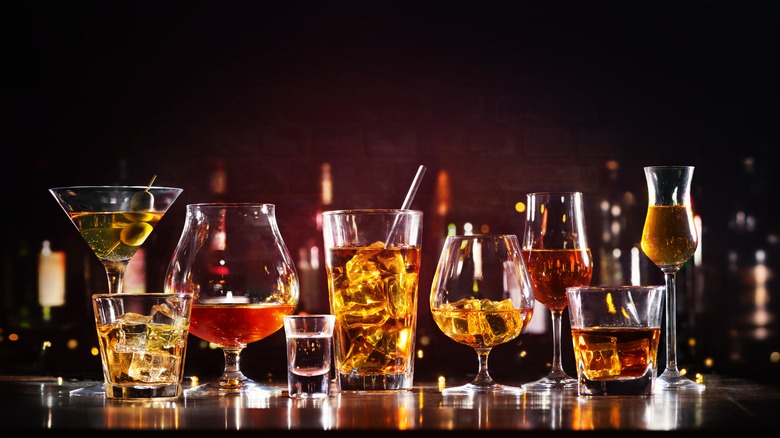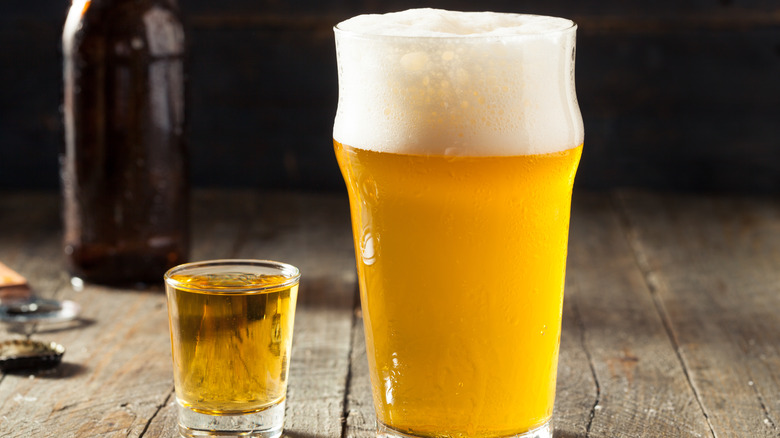Scotch Whisky And Beer Are More Similar Than You Might Think
Are you a whisky person who enjoys finding nuance in every sip? Or do you prefer your social lubricant in the form of a hoppy beer? We've been consuming alcohol in one way or another for millions of years – our primate ancestors ate rotting and fermenting fruit they found, per LiveScience. More recently, around 5,000 years ago, ancient Mesopotamia was host to the Sumerians, who worshipped a goddess of beer and brewed their own beer in ceramic jugs, per Craft Beer & Brewing. The beer we're familiar with, though, with its crisp, bitter flavors, appeared when Christian monks began brewing with hops, an excellent preservative. We now have lagers, ales, double dry-hopped pale ales, sours, stouts, and porters – a type of beer for every taste.
Whisky is literally "the water of life" – uisage beatha in Gaelic, probably because the theory is that monks used the distilled liquid as a medicine. While whisky production can be traced back to the 5th century in Ireland, the royal finances cited "bolls of malt" to a friar in Scotland in 1494 to make "aqua vitae." Today, Scotland has over 100 distilleries dotted around the country, each with their own distinct flavors, from fruity to spicy to smoky. They also export most of what they produce – 1.38 billion bottles were sent around the world in 2021, with the French importing the bulk of it, per The Real Word by Trafalgar. But, whisky and beer start off in much the same way, making them way more similar than you expect.
Whisky and beer's similar ingredients allow for delicious pairings
We can think of beer and whisky as half-siblings on the family tree of alcohol. According to the Food Network, whisky is beer but distilled – the difference is that there are no hops added to whisky. Beer and Scotch whisky's brewing and distilling processes start with the same ingredients – water, grain, and yeast. Beer can be made with barley, wheat, or rye, per Beer Connoisseur, while Scotch whisky uses malted barley or unmalted cereals like wheat, according to Scotch Whisky Association. The processes differ after the grains are mixed with hot water to create a "wort" – hops are added to the wort before fermentation to create beer, while whisky goes through distillation to separate the alcohol from the water. The liquid is then aged in oak barrels, where it's aged for three years by law, per Scotch Whisky Experience.
Because they start off life with the same ingredients, Scotch whisky and beer pair exceptionally well together. The combination is more common and flavorful than you might initially think. The most common name for mixing beer and whisky is the Boilermaker, probably invented in the 1800s, per The Glenlivet. Blue-collar workers building locomotive engines would order a shot of whisky with a beer chaser, or so the story goes. According to Ballantine's, you can even try "a hauf an a hauf," which is alternating sips of whisky and beer. Just be aware of how much you're consuming – mixing the two has the potential to be quite strong.

